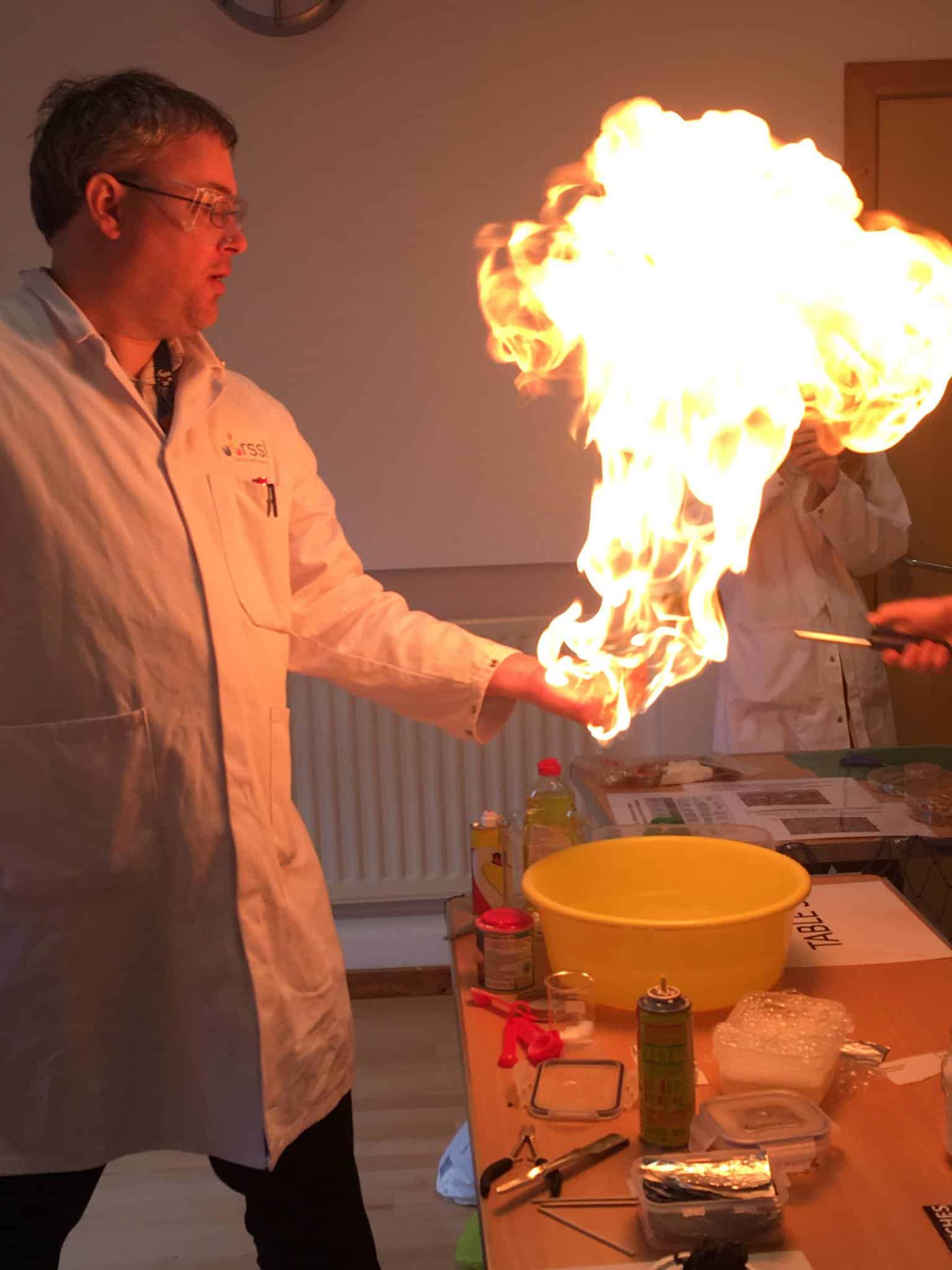-
Asked by anon-385215 to Zoe V, nikrobinson, Michael S, Martin M, Erin Pallott, Bruno Silvester L, Alexander dB, hannahbaird on 27 Feb 2024. This question was also asked by anon-383628, emily, mia, busy1sewn, BellaB, LilyB.0
Question: What is a Phd??
- Keywords:
-
Zoe Vance answered on 27 Feb 2024:
A PhD is a post grad degree (so one you would do after a Bachelor’s degree) where you earn the qualification through research. They take 3 or 4 years (mostly 4 nowadays, longer in some countries) and you spend your time learning from a supervisor how to carry out research and trying to answer a specific research question, finally writing everything up in a thesis. For example, during my PhD the question I was trying to answer was ‘why can some genes successfully duplicate’, so I learned how to process genetic data, run statistical tests and how evolution works. When you submit your thesis it then has to be examined, which means more senior scientists read it and discuss it with you. If you pass (most people have a few corrections first, minor mistakes or things the examiners think should be added/clarified) then you have a PhD and can call yourself Dr.!
-
Erin Pallott answered on 27 Feb 2024:
Just as Zoe said! When you complete it, it means you are a doctor of philosophy (as opposed to a doctor of medicine MD). You will have added something to human knowledge as you learn how to do research.
-
Alexander De Bruin answered on 27 Feb 2024:
a second degree which usually takes 3-5 years in the UK. You become a technical expert in a very specific subject, write a book (called a “thesis”) then have a long interview about your work (called a “viva”), if you pass you then get a PhD or a DPhil depending on where you did the degree and can call yourself “doctor”
-
Martin McCoustra answered on 28 Feb 2024:
At university you can follow two types of course… You can to a taught course that teaches you about a subject. These are Batchelors or Integrated Masters degrees. Once you have that first degree then you can pursue a research degree which means you have find out new stuff and write it up as a thesis. This is your Doctorate in Philosophy or PhD. There is one step beyond that which is the Doctorate in Science or DSc which only comes after you’ve accumulated 10 or more years experience as a research scientist.
-
Michael Schubert answered on 29 Feb 2024:
It’s a high-level university degree that involves a lot of research and writing. They’re fun, but they’re not easy! In the UK, they often take three or four years; in other countries, they might take a lot longer. I did my PhD in America, so it took me five and a half years.
-
Nik Robinson answered on 6 Mar 2024:
I did an Engineeringf Doctorate, which is more vocational and completed with strong links to industry, so you can be an Doctor of Engineering too “EngD”. my area being probabilistic risk assessment of chemicals in the aquatic environment.
-
Bruno Silvester Lopes answered on 21 Mar 2024:
Ph=Philosophy D=doctor. others have provided an excellent definition 🙂
Related Questions
I havent done the best in my first year of maths, physics and chemistry, I was wondering if its possible for me to get
How important is it, in your opinion, to get your GSCEs?
How long have you worked on ai for. Is it hard to work on it and what grades in GCSE do you need to be able to work and
how fun was your PHD?
what qualifacations do you need for your job
what grade did you get in a level science
What degrees have you done (undergraduate, masters,etc) and would you say they were necessary to work in your desired
do you have to go to universety to be a scientest
what subjects did you do for gcses
Latest Questions
-
How do you make new drugs
-
how many plants do you study normally?
-
what happens when a person whos sick gets a DNA while the person is sick what do you do
-
What are polysaccharides?
-
how many nuclear explosions happen in the world
-
how does your job effect your daily life ? (2 Comments)
-
why does nuclear waste glow in the dark? (1 Comment)
-
how to you deal with problems you come across when doing your research? (2 Comments)
-
If you have been emotionally invested (focusing on anxiety if you suffer with it, dementia etc) do you find it
-
what motivates you to carry out your research? (1 Comment)
Latest Comments
-
how does your job effect your daily life ? (2 comments)
-
why does nuclear waste glow in the dark? (1 comment)
-
what motivates you to carry out your research? (1 comment)
-
how to you deal with problems you come across when doing your research? (2 comments)
-
How long have you been a scientist for (2 comments)







Comments
Bruno Silvester L commented on :
Ph (Philosophy) D (Doctor) 😀
Samantha commented on :
It’s a qualification you can do after a university degree – usually identifying a particular issue and doing research into it and producing a detailed report (called a thesis) about your research and what you’ve found and hopefully the solution you produced.